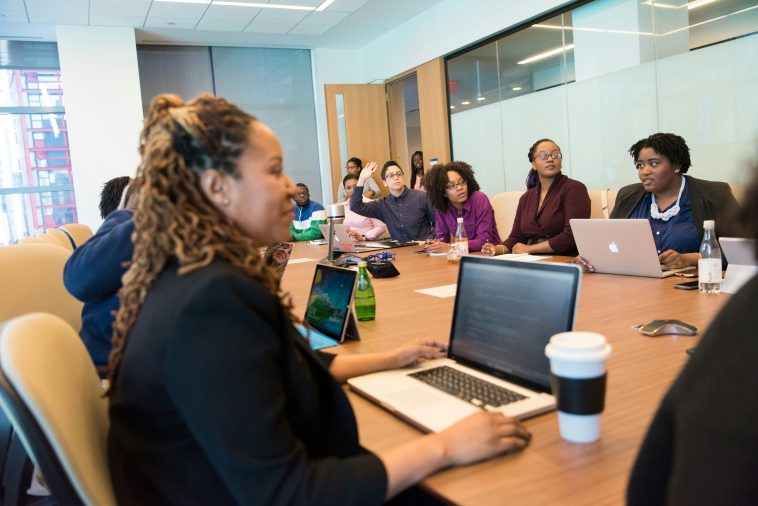A few years ago, AI and blockchain were largely unfamiliar concepts in Africa. As of 2020, there was a significant digital divide on the continent. For instance, only 28% of Africans had internet access, in stark contrast to the global average of 56%. The World Bank highlighted limited infrastructure and technical expertise as the primary obstacles to widespread technology adoption. Consequently, the chances of adopting disruptive technologies like AI and blockchain were minimal, especially in national conversations and policy discussions. However, since then, access to broadband internet in Africa has risen to 36%.
In 2022, African blockchain startups garnered $474 million, reflecting a remarkable 429% year-on-year surge. Nations such as Kenya, South Africa, and Nigeria have secured spots among the top 10 worldwide for cryptocurrency usage.
Numerous African countries are increasingly adopting disruptive technologies like Artificial Intelligence (AI) and Blockchain to optimize operations, boost transparency, and enhance service delivery for their citizens. From combating corruption with blockchain to developing national currencies, several African nations are leveraging disruptive technology to revolutionize governance.
Mauritius
Mauritius distinguishes itself as a frontrunner in AI governance, having implemented a comprehensive national strategy grounded on four key principles: fostering both new and existing AI applications, constructing a robust AI ecosystem, investing in skills development, and creating regulatory frameworks to guide responsible AI adoption.
This strategic approach enables Mauritius to harness AI across multiple sectors, including healthcare, fintech, and sustainability. For instance, real-time traffic management systems are being developed in the transportation sector to enhance community safety. By 2030, AI is anticipated to contribute significantly to the nation’s economy, potentially accounting for up to 10% of the overall GDP, which is currently valued at $11.5 billion.
South Africa
South Africa boasts a significantly developing economy and advanced infrastructure, including access to 5G networks and key cloud service providers. With a GDP of approximately $350 billion and an internet penetration rate of 64%, the nation has a strong foundation to effectively leverage AI.
The commitment to responsible AI development is evident through the establishment of the South African Artificial Intelligence Association, which promotes ethical practices within the AI ecosystem. However, challenges remain in adopting AI on a wider scale. A major hurdle is the skills gap, as only 16% of the population has post-secondary education.
This necessitates focused efforts on AI education and training programs. Additionally, the country struggles with limited data infrastructure in rural areas, highlighting the need for expanded mobile access to ensure more inclusive AI adoption.
A significant challenge is the skills gap, as only 16% of the population possesses post-secondary education. This situation demands targeted initiatives in AI education and training programs. Additionally, the country struggles with insufficient data infrastructure in rural regions, highlighting the need for expanded mobile access to promote a more inclusive AI adoption process.
Egypt
Egypt places a strong emphasis on education and training as the foundation of its AI strategy. This initiative is closely aligned with educational programs aimed at equipping future generations with essential AI skills.
Recognizing the necessity of a skilled workforce, the strategy focuses on ensuring a seamless transition to an AI-driven workforce, with a goal of retraining and redistributing skills to minimize job displacement. This approach is particularly pertinent given that over 60% of Egypt’s population is under 30. The initiatives aim to prepare these future generations to excel in an AI-powered economy.
Tanzania
Earlier this year, Tanzania announced its plan to join other African nations in leveraging AI to revolutionize governance. This initiative aims to enhance the country’s digital data pool and improve e-government services, ultimately increasing efficiency, transparency, and reducing corruption. Minister of State George Simbachawene highlighted the challenges of traditional service delivery methods, citing delays and a “lackadaisical attitude” among some public servants. By integrating AI into e-government platforms, Tanzania aims to streamline processes, eliminate unnecessary queues, and expedite service delivery for citizens. With an internet penetration rate of 31.6%, there is significant room for growth and improvement in the country.
Ghana
Ghana recently declared its ambition to become Africa’s first blockchain-powered government. This initiative, announced by Vice President Mahamudu Bawumia during an anti-corruption conference, seeks to utilize blockchain technology’s fundamental advantages: immutability, which ensures data cannot be modified, and transparency, where all transactions are openly recorded. These elements can greatly diminish the chances of manipulation and fraud within governmental operations.
Beyond enhancing security, blockchain also shows potential for optimizing government operations.
By streamlining workflows, automating tasks, and improving record-keeping, it could lead to quicker processing times, reduced administrative burdens, and enhanced service delivery for Ghanaian citizens. Ghana is currently a leader in Africa in using digital tools for governance, with internet penetration at 48% and a GDP of $74 billion. Their government platform, Ghana.gov, has successfully onboarded 99% of government agencies. However, Ghana’s ambitious plans may face some significant hurdles.





